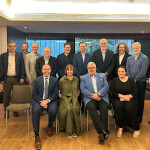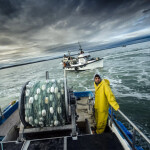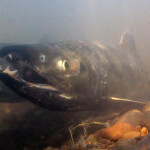Filters
Product Categories
Introducing RISE, a Roadmap to Improve Seafood Ethics

Fishermen and coastal communities are increasingly experiencing shifts in fish resource abundance and distribution, likely related to changing ocean temperatures caused by climate change.
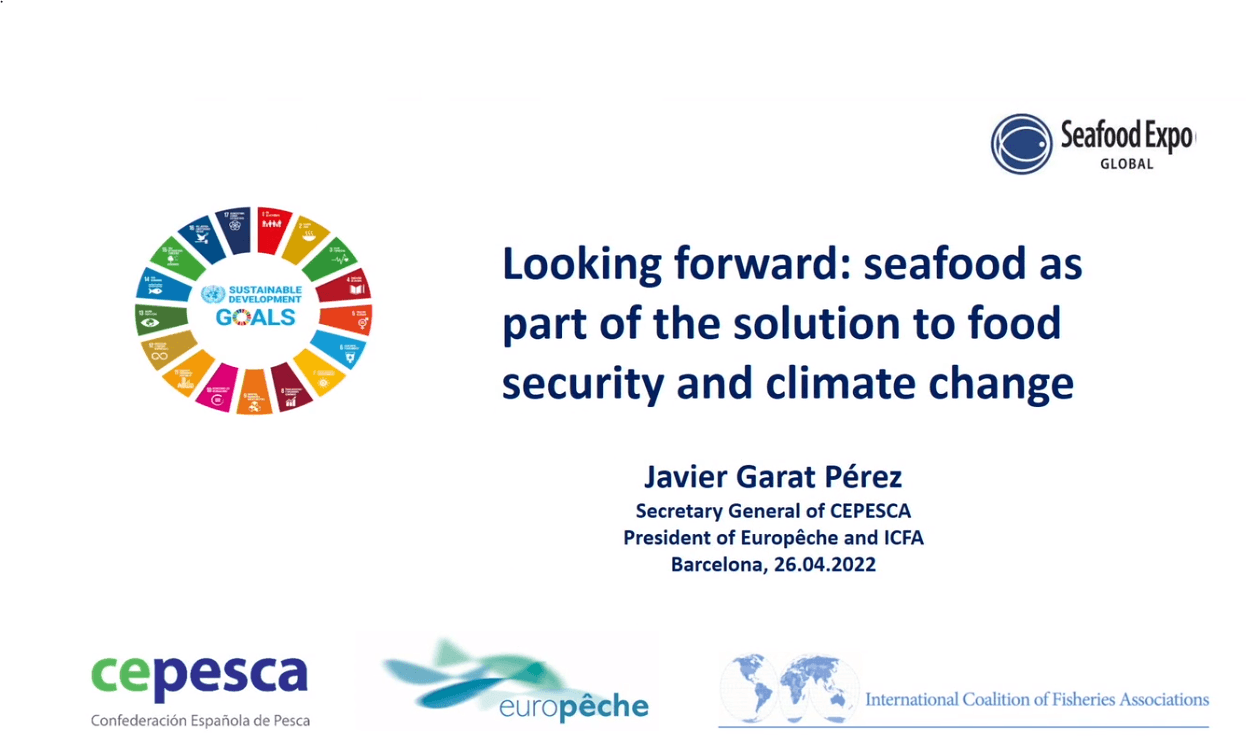
Speaker: Javier Garat, President - Europêche and ICFA
FAO talks about the new narrative concerning the fishing industry. In the conference, Javier Garat will talk about the reasons why seafood is the healthiest animal protein in the planet and with less carbon footprint in its production. He will explain why it is so important to contribute to world food security and to the fight against climate change. Garat will talk about the need to manage 100 % of the world fish stocks and the need to balance the conservation of marine biodiversity, the sustainable use of the natural resources and the food security. Furthermore, he will talk about the contribution of fishing industry to the SDG and how innovation is contributing to the sustainability of the industry.

Forecasting Ocean Weather | The solution to protect, insure, & invest in salmon aquaculture
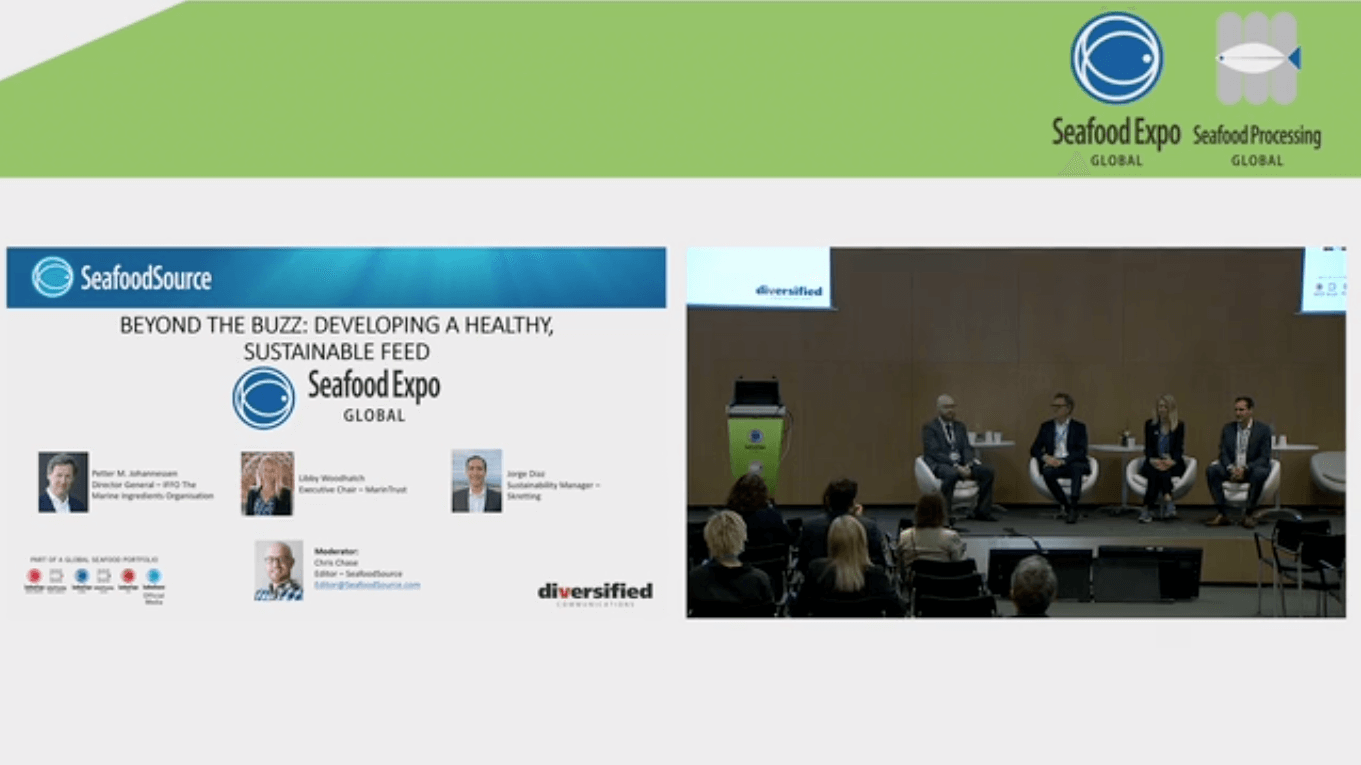
Speakers: Chris Chase, Editor - SeafoodSource.com, Jorge Diaz, Sustainability Manager - Skretting, Petter Martin Johannessen, Director General - IFFO The Marine Ingredients Organisation, Libby Woodhatch, Executive Chair - MarinTrust
The aquaculture feed sector is seeing the development of new inputs with the potential to improve the sustainability of its product. While these new innovations can contribute to a better feed, traditional inputs like fishmeal still hold the greatest potential to efficiently deliver a nutrient rich, sustainable feed to the aquaculture marketplace. This panel will explore how the feed sector is working to design a feed that meets the needs of the aquaculture industry and its customers.

There is increased awareness about the need to change the way we farm and harvest fish. A more efficient production and transparent value chain will be important factors in establishing future sustainable growth for the industry.
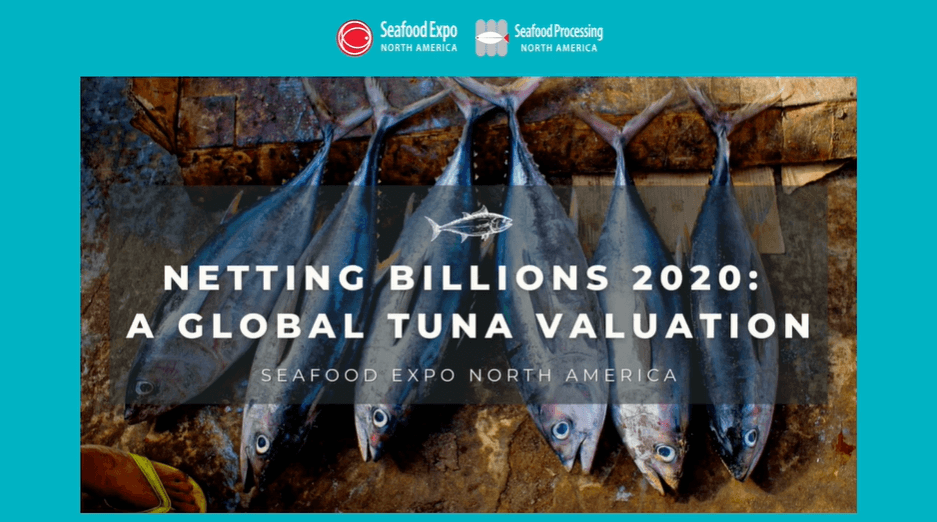
Moderator: Grantly Galland, The Pew Charitable Trusts
Speakers: Hugo Byrnes, Ahold Delhaize
Greg Hammann, Marine Instruments
Raiana McKinney, The Pew Charitable Trusts,
Tom Pickerell, Global Tuna Alliance
In 2018, commercial tuna fishing was worth more than US$40 billion to the world economy, more than the GDP of at least 100 nations. From canned tuna to top-shelf bluefin sashimi, these fisheries generate significant revenue and support an enormous industry from the fishers all the way to the consumers. Due to the ongoing global pandemic, demand for non-perishable protein sources, such as canned tuna, has skyrocketed. It is easy to see just how vital the tuna industry is for not just the blue economy—but for food security around the world.
But while vessels are catching more tuna than ever before to meet this demand, the value at the dock and at the final point of sale has decreased since 2012. When factoring in the costs associated with higher catch, profits may have even declined substantially. The message is clear: catching more fish is not always better for the bottom-line. Sustainably managing tuna fisheries and allowing overfished stocks to recover will maximize their value, reduce the cost of fishing, and sustain marine ecosystems and the industries and people who rely on tuna fishing. Better management of tuna fisheries is not simply a conservation issue but also an economic one.
Yet, more often than not, the long-term sustainability of these fisheries takes a back seat to the short-term political or monetary gains that often drive management decisions. Adopting forward thinking harvest strategies, coupled with stronger consequences for noncompliance and well-developed electronic monitoring of fishing activity would all help restore tunas to healthy population sizes, preserve their value, and ensure that these valuable fisheries are being governed effectively.
This session would start with an overview presentation on recent research to estimate the global monetary value of commercial tuna fisheries. Beyond the economics, the presentation will cover the tuna fisheries management process and discuss ways governments and industry can improve management of fish stocks globally by:
1. Modernizing management through harvest strategies,
2. Improving oversight and accurate reporting of fishing activities, and
3. Ensuring consequences for noncompliance with fisheries rules.
Following this presentation, the Global Tuna Alliance will moderate a panel discussion.

What the New Executive Order on Seafood Means for Expanding Sustainable U.S. Seafood Production

Electronic Data Capture Drives the Digital World
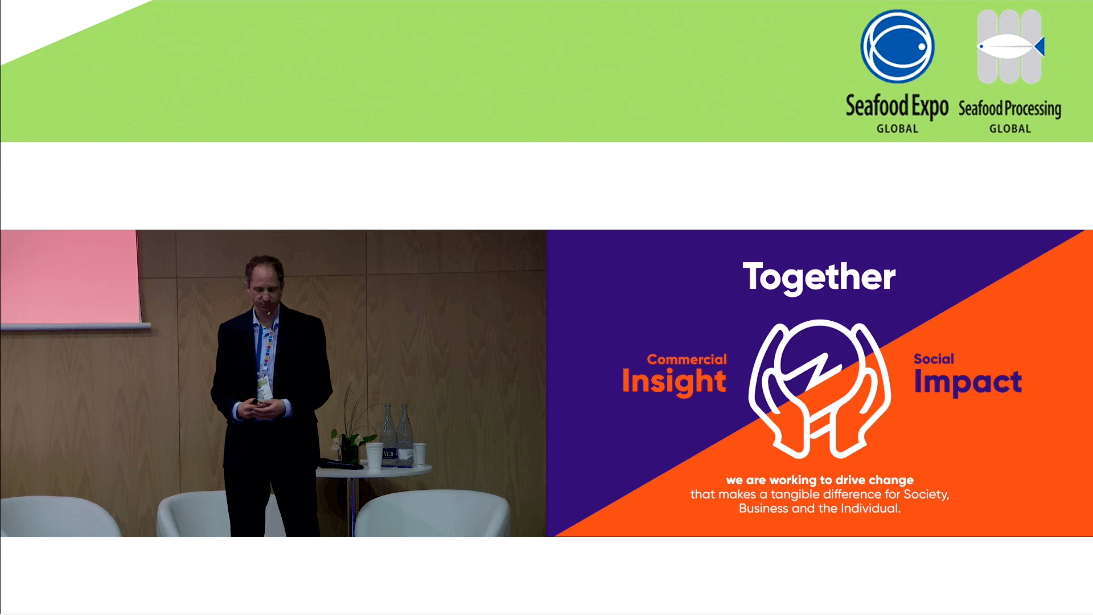
Speaker: Jon Wright, Head of Retail - IGD
Accelerated by the pandemic, omnichannel strategies are helping best-in-class, global retailers to win. With stores at the centre of these strategies, using its Store of the Future framework, IGD will showcase five trends shaping store development. Showcasing examples from across the world, IGD will look at how retailers are increasing their focus on fresh and counters and how they are engaging with shoppers on key trends, such as sustainability and health.


